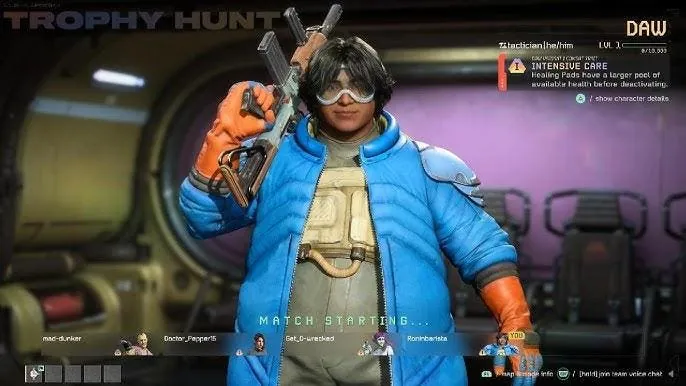
Is Concord the Catalyst Behind Sony's Retreat from Live Service Games?
2025-01-18
Author: Ken Lee
Introduction
In a surprising turn of events, Sony has reportedly canceled two additional live service games: a multiplayer installment set in the God of War universe developed by Bluepoint and another undisclosed project from Bend Studio. These cancellations join the ranks of previously axed titles such as The Last of Us Online and Spider-Man: The Great Web, raising questions about the future of Sony's live service ambitions.
The Fallout from Concord
The fallout from the colossal failure known as Concord appears to be sending shockwaves throughout Sony, forcing the company to rethink its strategy regarding games-as-a-service. Initially, Sony had ambitious plans to roll out up to 12 live service titles within the next few years. So far, only one of these has seen significant success—Helldivers 2, a cooperative PvE game—while others have faltered, been canceled before their launch, or have been met with disappointing receptions, most notably Concord.
Industry insider Jeff Grubb contends that the disastrous performance of Concord has led to a radical reevaluation of all ongoing live service projects at Sony. This has prompted the recent cancellations of games that were never officially announced, evidencing a fear of repeating Concord's mistakes. Early reports suggested that Sony had high hopes for Concord as a standout new IP for the PlayStation ecosystem, highlighting extensive planning around seasons, narratives, and even collaboration with Amazon Prime Video for marketing. Ironically, this series began airing posthumously, after the game's demise.
Industry Response and Future Implications
The industry's response to Concord's staggering failure—falling short of 700 concurrent players on Steam shortly after launch—has been unrelenting. Many are perplexed by how such a considerable investment could dissipate in just two weeks, a scenario that is unprecedented in gaming history.
However, the seeds of these issues were already apparent well before Concord's release. The Last of Us Online's cancellation followed years of development by Naughty Dog, which likely delayed upcoming projects like a new Intergalactic title and the anticipated Last of Us Part 3. Additionally, the highly successful Spider-Man 2 was released without the planned Great Web component, indicating a significant shift in strategy mid-development.
Current Developments
Amidst these challenges, it seems that Guerrilla Games is forging ahead with at least one live service project linked to the Horizon Zero Dawn franchise, marking a potential shift for single-player titles to adopt multiplayer formats. Yet, history indicates that such attempts have generally been met with failure.
It's important to note that while earlier multiplayer adaptations of single-player franchises—like the PvP mode from The Last of Us Factions and the cooperative experience in Ghost of Tsushima's Legends—were well-received, they were more isolated experiences rather than part of an elaborate ongoing 'live service' model. The recent announcement of a new standalone co-op game from Elden Ring, titled Nightreign, echoes this sentiment, as it opts out of the live service approach.
Looking Ahead
Looking ahead, one of Sony's most highly anticipated launches in 2025 includes Bungie's Marathon, a fresh take on the extraction shooter genre that is uncharted territory for AAA titles. Bungie's reputation, primarily stemming from their work on the Halo and Destiny franchises, bodes well for the project. However, Marathon will not be PlayStation exclusivity, as part of Bungie's acquisition stipulates that their upcoming titles will be available on multiple platforms, including PC and Xbox.
The success or failure of Marathon will likely have significant implications for Sony's live service endeavors. If they struggle to make a compelling PvP experience with Bungie, the question arises: what direction is Sony headed in this increasingly uncertain genre? With recent developments, the future of Sony's live services appears on shaky ground, leaving gamers eagerly awaiting clarity on what lies ahead.



 Brasil (PT)
Brasil (PT)
 Canada (EN)
Canada (EN)
 Chile (ES)
Chile (ES)
 Česko (CS)
Česko (CS)
 대한민국 (KO)
대한민국 (KO)
 España (ES)
España (ES)
 France (FR)
France (FR)
 Hong Kong (EN)
Hong Kong (EN)
 Italia (IT)
Italia (IT)
 日本 (JA)
日本 (JA)
 Magyarország (HU)
Magyarország (HU)
 Norge (NO)
Norge (NO)
 Polska (PL)
Polska (PL)
 Schweiz (DE)
Schweiz (DE)
 Singapore (EN)
Singapore (EN)
 Sverige (SV)
Sverige (SV)
 Suomi (FI)
Suomi (FI)
 Türkiye (TR)
Türkiye (TR)